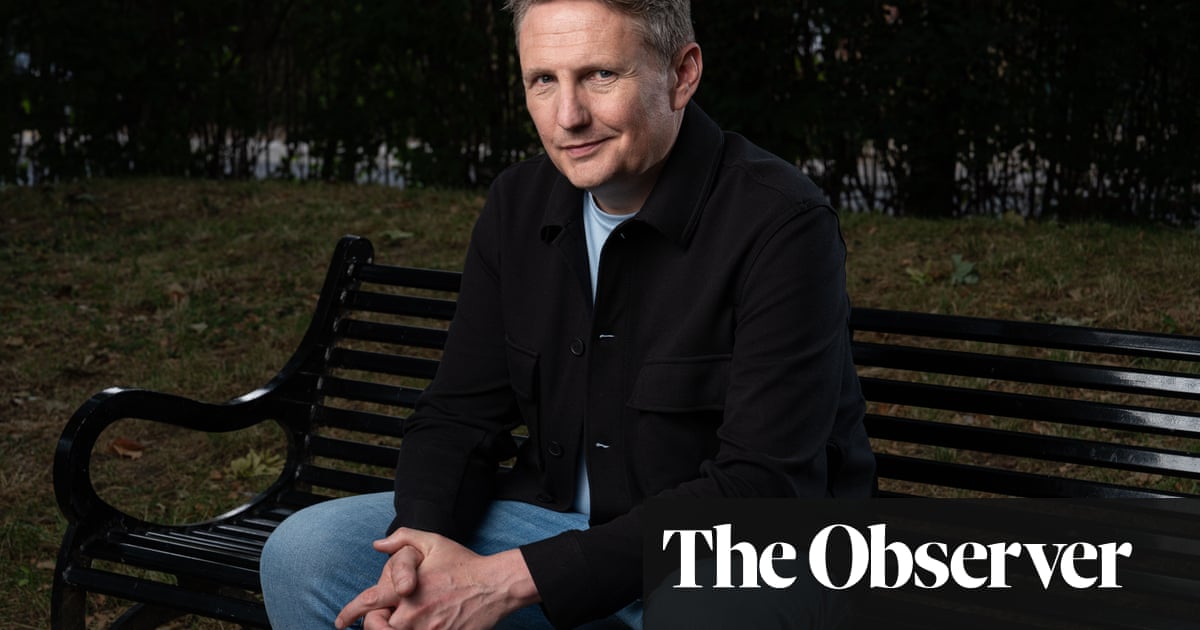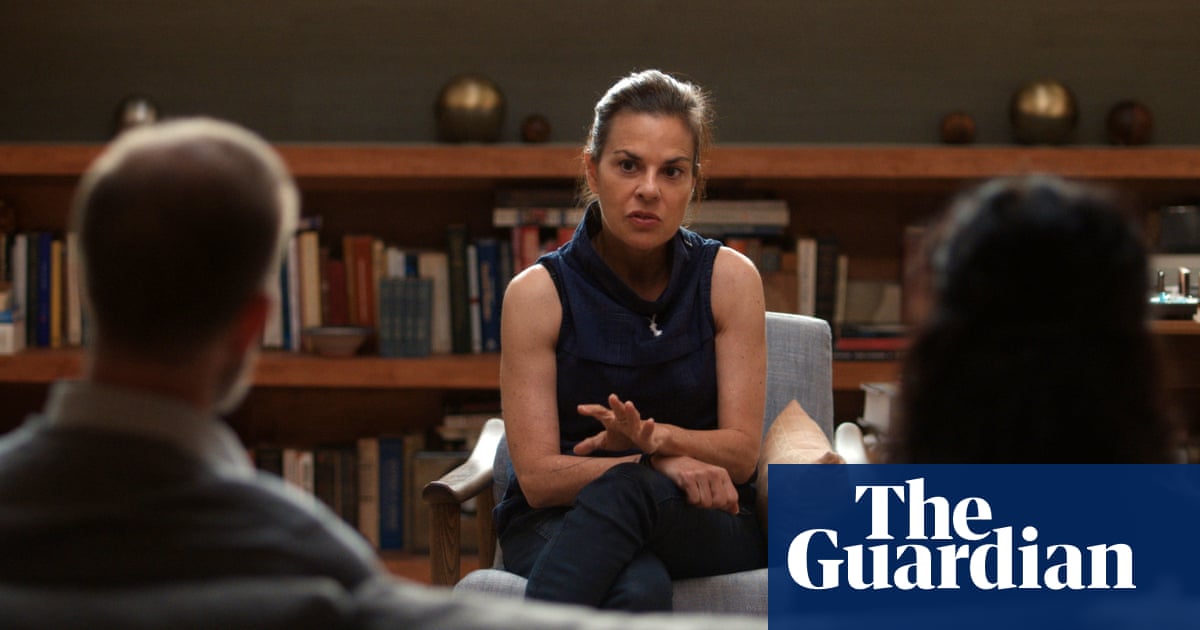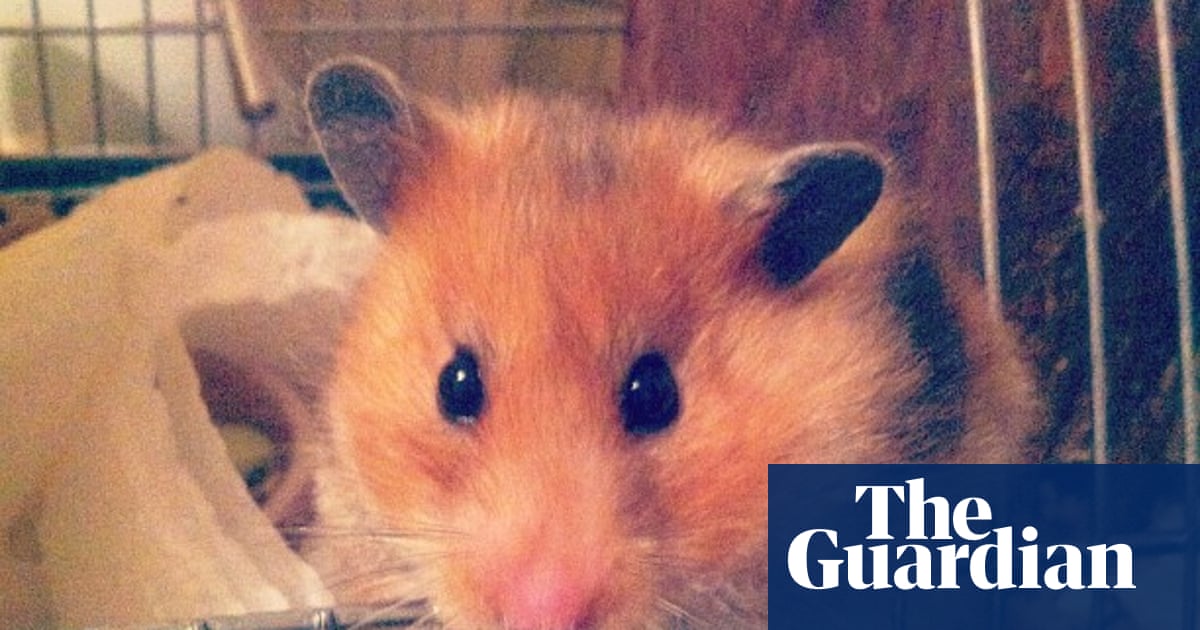
Comedian Mark O’Sullivan was sexually assaulted by a member of his extended family when he was 12 years old. In his 30s, he reported the abuse to the police and, following a court case, the perpetrator was convicted and jailed.
Now 47, O’Sullivan is addressing this painful part of his past through his comedy. A documentary My Sexual Abuse: The Sitcom, will be screened on Channel 4, with the accompanying sitcom streaming online.
“Comedy has helped me get through all the darker moments of my life,” said O’Sullivan, who is best known for Channel 4 sitcom Lee & Dean and ITV drama Tell Me Everything. “Making something positive out of the trauma I went through as a child really feels like the best – the only – way for me to deal with it.”
The documentary chronicles the writing, rehearsal and filming of the sitcom in front of a studio audience. “I’ve wanted to make something about what happened to me for a long time,” said O’Sullivan. “After writing Tell Me Everything, where I explored my teenage years and what happened to me when my dad died suddenly, I knew this part of my life had to be next. I don’t know if I was ready to tackle it before now, to be honest.”
O’Sullivan is part of a new wave of male comedians making TV out of their trauma. Comedian Richard Gadd turned his separate experiences of alleged stalking and sexual violence into the dark drama, Baby Reindeer, which has been the most-streamed show on Netflix in recent weeks, playing himself in the guise of a struggling standup called Donny.
“I thought Baby Reindeer was remarkable TV,” O’Sullivan said. “Brave and harrowing.”
Bruce Dessau, editor of comedy website beyondthejoke.co.uk, believes these male comedians are reflecting a broader societal shift. “After Baby Reindeer, this is another example of how comedians and writers are increasingly prepared to mine their own trauma when creating their work,” said Dessau.
“As a society, we’ve become more open about mental health. It’s only natural this would be echoed in popular culture … comedy is the perfect medium for confessionals. Humour is a powerful way of processing experiences.”
Previously it has tended to be women who have used TV comedy to address their personal pain, including some of the most successful shows in the past decade, Phoebe Waller-Bridge’s Fleabag and Michaela Coel’s I May Destroy You.
Billy Connolly and Alan Davies both spoke about the abuse they suffered in boyhood, although neither has directly addressed it in their standup. Younger generations seem more prepared to do so. Bradford comic Jonny Pelham performed his show Off Limits at the Edinburgh festival in 2019, addressing how he was sexually abused as an eight-year-old.
“There’s a growing trend for male comedians to confront emotional issues, notably with the rise of the ‘dead dad’ show, in which comedians have tackled tricky familial relationships,” said Dessau. “The first was probably Russell Kane’s Smokescreens and Castles, which won the Edinburgh comedy award in 2010. More recently, John Robins was acclaimed for his show Howl, in which he reflected on his mental health and alcohol use.”
In O’Sullivan’s documentary, he consults a psychotherapist about using comedy to confront some of the worst periods of his life. He shares aspects of his ordeal for the first time with his wife, Jenny, and discusses with his comedy partner, Miles Chapman, how it continues to shape his mental health. Fellow comedian Iain Lee, himself an abuse survivor who has retrained as a counsellor, challenges O’Sullivan about the project, warning that it could get him “cancelled”.
O’Sullivan chose to tell his story in the style of an 1980s family sitcom. “I want to make the point that sexual abuse can happen anywhere, to anyone,” he said. “There’s a perception that it only happens to certain types of people, in certain parts of society. That just isn’t true. So I wanted a bright ’normal’ family in the type of sitcom setting I grew up watching.”
He plays the 12-year-old version of himself, as he didn’t want to put a young actor in the position of being groomed and abused, even in a fictional setting. Paedophile “Uncle Steve” is portrayed by a cartoonish giant teddy bear. “I decided quite early on to play myself,” said O’Sullivan. “It just felt right. As for the bear, while there are great documentaries that deal with the abusers – who they are, what motivates or drives them – mine isn’t about the abuser. I wanted him to be more of a symbol, like a life-sized emoji.”
O’Sullivan added: “I hope it helps to normalise the conversation around sexual abuse. Silence is fuel to abusers. It stops people from coming forward to say what happened to them. If we talk about it, shine bright light directly on to it, we can deal with it. Making this has helped me so much. I hope it helps others too.”












